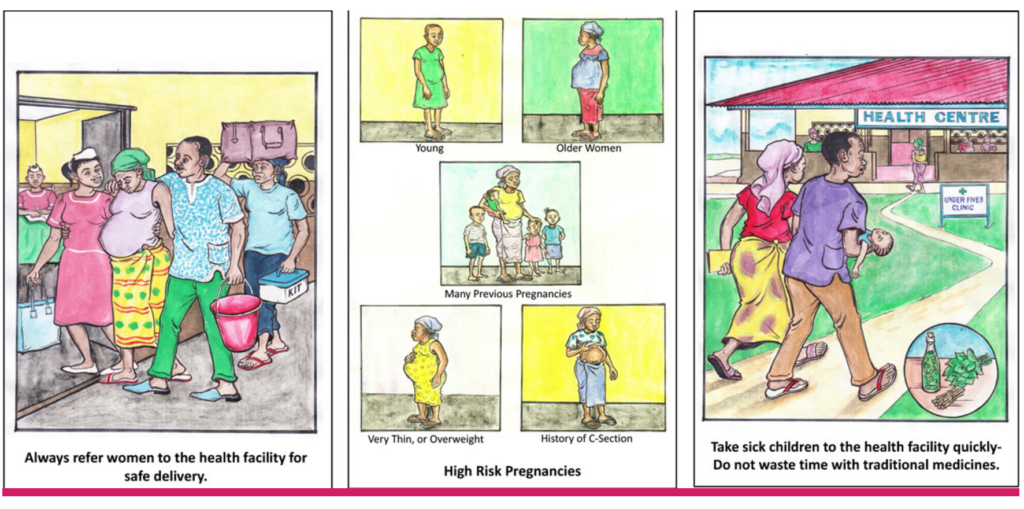Former traditional birth attendants are saving mothers and babies in Sierra Leone.
Standing in the doorway, Marian Keikula washed her hands with bleach water, as is the norm in an era of Ebola, and called out to a pregnant woman. The woman emerged from the dim interior, trailed by her son and elders. As everyone gathered outside, Keikula began chatting with the woman about her pregnancy. How was she feeling? Had she experienced bleeding? Was she taking traditional herbs?
Using pictures for illiterate audiences, Keikula counseled the mother in the rural village of Taninahun in Sierra Leone about the risks of traditional medicines and home birth, and checked for complications. She stressed the importance of visiting the health center to make sure the mother and her baby stayed healthy, and gave her a referral card for an antenatal care visit.

Cards created with local artists were developed to educate illiterate health promoters as well as the families they serve.
Sierra Leone faces one of the highest death rates in the world for newborns and pregnant women. Historically, women gave birth at home with the help of a traditional birth attendant, who typically had little or no formal health care training.
To encourage women to deliver at health facilities, the government in 2010 made health care free for pregnant women and young children, and discouraged traditional birth attendants like Keikula from delivering babies at home. But many women continued to have their babies at home, often because the clinics were far away and short-staffed or were regarded with suspicion. Needless deaths continued.
A Rebirth for Traditional Birth Attendants
In search of a lifesaving solution, Concern Worldwide created the Essential Newborn Care Corps, enlisting the traditional birth attendants who were deeply respected by their communities but had lost the role they played in pregnancy and childbirth.
Learn more at http://www.concernusa.org/


